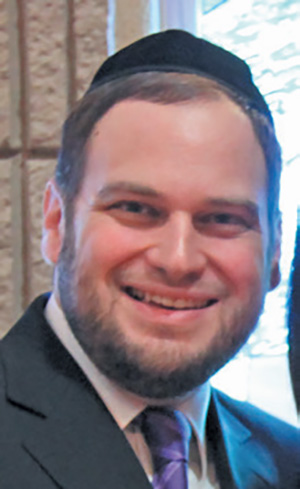
As if being the youngest in my family wasn’t enough, my last name didn’t do me any favors. I have a very warm place in my heart for the fourth grade teacher who said she was going to go backward in the alphabet when it came to getting a special opportunity in class. In all of my school years, such an occasion took place only a handful of times. On the other hand, when I didn’t do well on an exam and the tests were given back alphabetically, my last name delayed the dreadful news I was certain would come. I used to struggle with being last, and always tried to find the silver lining. The words of Chazal, “Acharon acharon chaviv, the last is beloved,” always struck a chord with me. I never usually felt special by being last and always felt awkward when hearing those words. It seemed as if Chazal just threw in those words to make people like me feel better. Could it be that always being last was really special? With maturity, over time, I started to see that there were instances when being the last was beneficial. When I had more time to prepare for an in-class presentation, or when I was able to structure it based on a professor’s feedback to the students before me.
One moment that was really captivating was my Chag HaSemichah at YU. Only I am able to remember the moment, even though hundreds of people were present. I don’t think anyone else would have realized anything out of the ordinary. The master of ceremonies began to recite the name of each rabbi, accompanied by loud applause from the crowd, at the end of the program. With more than one hundred names to announce, a concern about time was raised and a request was made. “Please refrain from applauding until the final name is read.” That final name was mine. At that moment it wasn’t so bad to be last after all. From that point on my outlook changed. When I come to a simcha, I know where to find my place card, and usually end up helping someone else find theirs. When I vote, I tell the attendant that they should just turn to the back page where my name is found. They smile and say, “You made that easy.” When I registered at a conference recently, another person registered on the spot and was told that they would have to be in the back. “Don’t worry, I’ll be right with you,” I assured him, and proceeded to introduce myself.
The Torah tells us in Parshat Beha’alotecha that the tribe of Dan was the last tribe in the Jewish people’s travel formation in the desert. Both Rashi and Tosafot have beautiful ideas as to why this position was special and unique. Rashi comments that the reason for this was because they were the most populous of all of the shevatim. They had an abundance to carry with them. He suggests that they welcomed their placement at the rear of the camp because it afforded them an opportunity that others did not have. With so many belongings on the move, there was bound to be something lost by the rest of the tribes during travel. Shevet Dan specialized in the mitzvah of Hashavat Aveida by returning the lost items to their owners. Tosafot suggests that Dan was unique because they welcomed all who wished to join them. When someone was held back for whatever reason and his tribe was far ahead, he would attach himself to Shevet Dan and eventually find his way back to his own tribe. Shevet Dan welcomed those who were lost and made them feel comfortable until they found their way back. Whenever and wherever we find ourselves in life, we can always look at our situation as an opportunity for growth on some level. We may be surprised as to how many people we can help, or how we ourselves can be inspired, by thinking twice about the place we find ourselves in.
By Rabbi Eliezer Zwickler
Rabbi Eliezer Zwickler is rabbi of Congregation AABJ&D in West Orange, New Jersey, and is a licensed clinical social worker in private practice. Rabbi Zwickler can be reached at [email protected].










